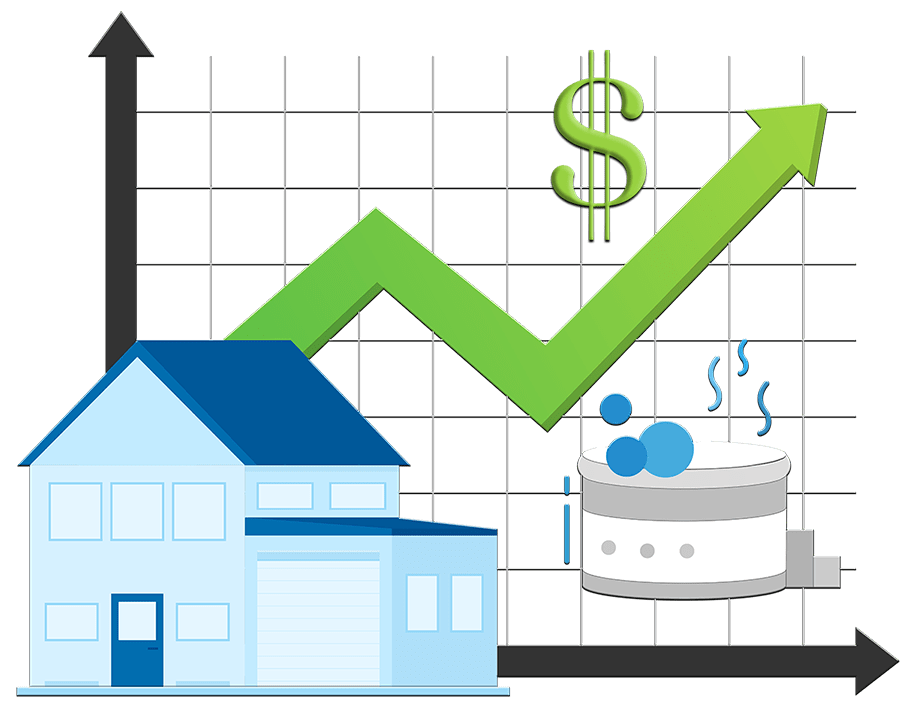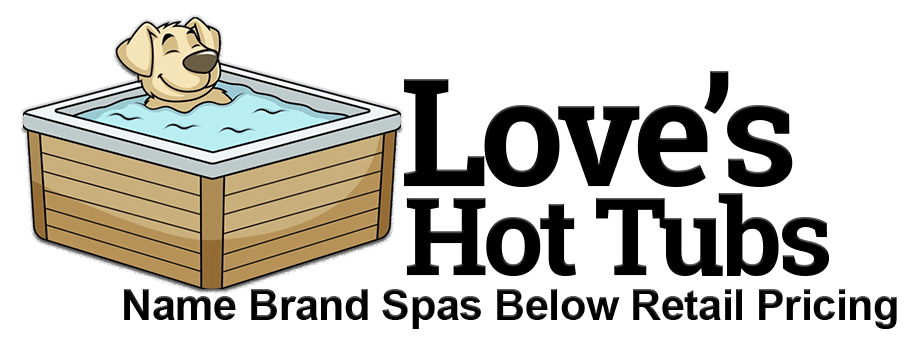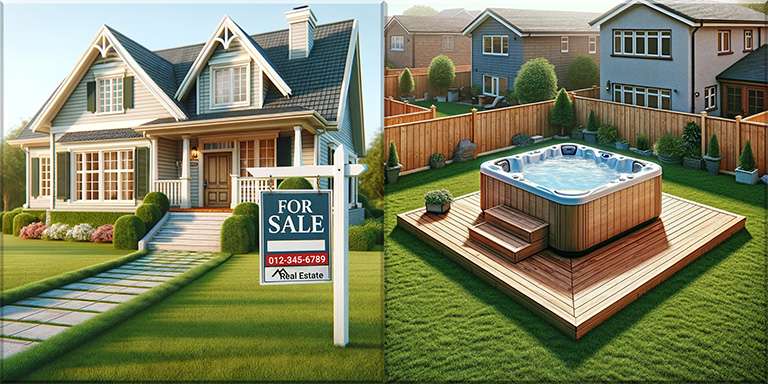When homeowners consider upgrades to boost their home’s value, they often turn to enhancements that beautify the space and increase its functionality. Installing a hot tub is a popular consideration for its potential to raise property value and attract buyers. This luxurious addition can transform a basic backyard into a serene sanctuary, making the home more appealing to certain demographics. Yet, the question remains: Can a hot tub truly enhance a home’s resale value?
This exploration delves into a hot tub’s impact on a property’s market price. By examining current market trends and the preferences of potential buyers, as well as the costs versus benefits, we aim to present a detailed analysis. We will unravel the intricate dynamics between hot tubs and resale values, focusing on essential factors like location, climate, and maintenance requirements. This article is designed for homeowners contemplating a hot tub installation, buyers deliberating their options, or anyone interested in the interplay between real estate market trends and luxury amenities.
Join us as we navigate the complexities of the real estate market’s stance on hot tubs, determining whether this sought-after addition is a prudent investment for enhancing your home’s resale potential.

Understanding The Real Estate Market's Perspective On Hot Tubs
The real estate market is complex and ever-evolving, with trends that can significantly influence the perceived value of home features, including hot tubs. Understanding these trends, alongside the general perceptions held by potential buyers, is crucial for homeowners considering adding a hot tub to enhance their property’s resale value.
Market Trends & Buyer Demand
In recent years, there has been a shift towards homes that offer more than just living spaces; buyers are increasingly looking for properties that promise a lifestyle. In this context, amenities like hot tubs have moved from luxury add-ons to sought-after features, especially in high-end markets or regions with year-round outdoor living. However, the appeal of such features can vary widely depending on local market trends and the average buyer profile.
A 2021 survey by the National Association of Realtors highlighted that while outdoor features are in demand, buyer preferences for hot tubs fluctuate. In some markets, homes with hot tubs can sell for a premium, particularly if they’re part of a well-designed outdoor living space that appeals to the local buyer demographic.
Perception Of Hot Tubs: Luxury vs. Necessity
Potential buyers’ perceptions of hot tubs play a significant role in determining their value addition to a property. For some, a hot tub is seen as a luxury, a symbol of a leisurely lifestyle that promises relaxation and enjoyment. For these buyers, a home with a hot tub might command a higher interest and potentially a higher selling price.
Conversely, others may view hot tubs as unnecessary additions that entail ongoing maintenance and cost. This group might be less willing to pay a premium for a property simply because it has a hot tub. The split in perception underscores the importance of knowing your target market before investing in a hot tub as a value-adding feature.
Statistical Insights
Data on hot tubs’ impact on home value can be mixed, reflecting the subjective nature of their appeal. However, certain statistics suggest homes with hot tubs can see a value boost. For instance, a study found that homes with hot tubs sold for up to 5% more in certain upscale neighborhoods than those without. Yet, this increase is unique across all markets or price points, indicating that the value addition of a hot tub is highly contextual.
Understanding the local real estate market and buyer demographics becomes crucial in assessing whether a hot tub will add significant value to your home. It’s also important to consider the installation’s quality, the overall aesthetic appeal of the outdoor space, and how well the hot tub integrates with the property’s design.
While hot tubs can enhance a home’s allure to specific buyers, their impact on resale value is nuanced. The local market trends and buyers’ perceptions of luxury versus necessity play significant roles in determining whether a hot tub is a wise investment for boosting your property’s market value. Next, we’ll explore the various factors that influence the value addition of a hot tub in more detail, providing a clearer picture for homeowners contemplating this upgrade.
Let’s delve into the factors that influence the value addition of a hot tub to ensure a comprehensive understanding of its impact on resale value.

Factors That Influence The Value Addition Of A Hot Tub
Adding a hot tub to a home can be seen through various lenses, each influencing its potential to add value from a resale perspective. Several key factors come into play, including the home’s location and climate, the target buyer demographics, the quality and condition of the hot tub itself, and considerations regarding energy efficiency and upkeep costs.
Location & Climate
The geographical location of a home significantly influences the value a hot tub adds. In regions with colder climates, a hot tub may be more desirable as it offers an opportunity for relaxation and warmth throughout the year. Conversely, in warmer climates, the appeal might stem from the luxury of an outdoor oasis during cooler evenings or seasons. Thus, a hot tub’s contribution to property value is closely tied to its perceived utility and enjoyment, which varies with the local weather patterns.
Buyer Demographics
Understanding the lifestyle and preferences of the target buyer demographic is crucial. A hot tub might be seen as a potential hazard or maintenance headache for families. However, a hot tub could significantly enhance the property’s appeal for young professionals or retirees looking for luxury and relaxation at home. The key is aligning the hot tub’s presence with the expectations and desires of the likely buyers in your market.
Quality & Condition Of The Hot Tub
The hot tub’s quality, aesthetics, and condition also play a vital role in its value addition. A high-quality, well-maintained hot tub that integrates seamlessly with the outdoor living space or garden can be a significant selling point. It suggests a lifestyle of leisure and luxury. On the other hand, an older, poorly maintained hot tub can have the opposite effect, serving as a red flag to potential buyers about potential future expenses and the effort required for its removal or replacement.
Energy Efficiency & Upkeep Costs
The ongoing costs associated with owning a hot tub, including energy consumption and maintenance, can impact a buyer’s perception of value. Modern, energy-efficient models that promise lower running costs can be more attractive as they mitigate one of the potential downsides of hot tub ownership. Clear documentation of the hot tub’s upkeep, including regular maintenance records, can also reassure potential buyers about the manageability of owning a hot tub.
By considering these factors, homeowners can better assess whether adding a hot tub will likely increase their home’s resale value. It’s not just about the hot tub itself but how it fits into the broader picture of the home’s location, the lifestyle it offers, and its appeal to the target market. With this in mind, let’s examine the pros and cons of having a hot tub from a resale perspective to understand its potential impact further.
These considerations set the stage for a nuanced discussion on the advantages and disadvantages that come with having a hot tub about a home’s resale value. Recognizing these elements will help homeowners decide whether investing in a hot tub will likely pay off when it comes time to sell.
Pros & Cons Of Having A Hot Tub From A Resale Perspective
The decision to add a hot tub to your home involves weighing the potential benefits against the possible drawbacks, especially concerning the home’s resale value. Here, we explore the pros and cons from a real estate perspective, considering how a hot tub might influence potential buyers and the sale price of your property.
Pros

- Enhanced Appeal to Specific Buyer Segments: A hot tub can significantly increase a property’s appeal to buyers looking for luxury amenities and a lifestyle of relaxation and leisure. This is particularly true in markets with rare features or in demand.
- Perceived Luxury and Lifestyle Enhancement: Homes with hot tubs often carry a perception of luxury. This can elevate the property’s status in the eyes of potential buyers, making it stand out in competitive real estate markets. Enjoying leisure time in a private, spa-like setting can be a strong selling point.
- Potential for Better Outdoor Living Spaces: A well-integrated hot tub can enhance outdoor living spaces, making them more functional and appealing. This can be especially valuable in climates where outdoor activities are limited by the weather, offering a year-round entertainment option.
Cons

- Maintenance Concerns: For some buyers, the upkeep associated with a hot tub can be a deterrent. Concerns about the cost and effort required for maintenance can overshadow the benefits, mainly if the hot tub appears aged or needs documentation of regular care.
- Limited Appeal: While a hot tub may attract certain buyers, it can limit the property’s appeal to others who view it as unnecessary or a potential safety hazard, especially for families with young children.
- Insurance and Safety Issues: Owning a hot tub can sometimes increase homeowners’ insurance costs due to perceived risks, such as accidents or water damage. Potential buyers might be wary of these additional expenses and liabilities.
- Energy Consumption: The cost of heating and running a hot tub can be a concern for eco-conscious buyers or those wary of high utility bills. Energy-efficient models can mitigate this, but the perception of high energy use remains a factor.
Despite these cons, the impact of a hot tub on a home’s resale value ultimately depends on how well it aligns with the preferences and priorities of the target market. A hot tub might be a deal-breaker for some, yet it could be the feature that seals the deal for others. The key to maximizing its value is understanding how to present it as an attractive, well-maintained amenity that enhances the living experience.
Given these pros and cons, homeowners can employ strategies to ensure their hot tub adds as much value as possible. These include ensuring the hot tub is well-maintained and in good working order, effectively integrating it into the design of the outdoor space, and marketing it as a desirable feature to potential buyers. By addressing potential concerns upfront and highlighting the benefits, sellers can make their hot tub an appealing feature that contributes positively to the home’s overall value.
Next, we will explore practical tips for integrating a hot tub into your property and maintaining it to maximize its appeal to potential buyers. This will include insights into aesthetic considerations, upkeep strategies, and how to use marketing to highlight your hot tub as a key selling point of your home.
Maximizing The Resale Value With A Hot Tub
Integrating a hot tub into your property and maintaining it well can significantly enhance its appeal to potential buyers, potentially increasing your home’s resale value. Here are strategies to ensure your hot tub adds as much value as possible.

Aesthetic Integration & Design
- Seamless Integration: Ensure the hot tub complements the overall design of your outdoor space. It should feel like a natural extension of the home, not an afterthought. Consider the placement, landscaping around it, and how it integrates with other outdoor features like decks, patios, or gardens.
- Privacy Features: Adding privacy features such as fencing, walls, or strategically placed plants can increase the hot tub’s appeal. Privacy enhances the luxury feel and makes the space more inviting.
- Lighting and Accessories: Thoughtful additions like ambient lighting, steps, and covers improve functionality and enhance the hot tub’s aesthetic appeal. Proper lighting can create a cozy atmosphere, making the hot tub area more attractive during evening showings.
Maintenance & Upkeep
- Regular Maintenance: Keep a detailed record of regular maintenance and repairs. A well-maintained hot tub, free of visible wear and tear, is more likely to be seen as an asset rather than a liability. Regular servicing ensures it’s in good working order, reassuring potential buyers.
- Cleanliness: Ensure the hot tub is always clean and well-kept, especially before showings. A clean hot tub will appear more inviting and less of a maintenance burden.
- Efficiency Upgrades: If possible, upgrade to energy-efficient pumps and heaters. These improvements can address concerns about high utility costs and appeal to environmentally conscious buyers.
Marketing Strategies
- Highlight Lifestyle Benefits: In your marketing materials, emphasize the lifestyle benefits of having a hot tub. Create a narrative around relaxation, entertainment, and luxury that the hot tub adds to the home.
- Professional Photography: Invest in professional photography that showcases the hot tub and the outdoor space in the best light. High-quality images can make a significant difference in how potential buyers perceive the value of the hot tub.
- Feature in Listings: Ensure the hot tub is prominently featured in your home’s description. Highlight any upgrades, energy-efficient features, and the hot tub’s benefits to attract potential buyers’ attention.
Real-life Examples & Case Studies
Exploring real-life examples and case studies can provide valuable insights into how a hot tub impacts a home’s resale value. These anecdotes offer perspectives from various markets and situations, illustrating both successes and challenges homeowners faced when selling properties with hot tubs.
Case Study 1: Enhanced Market Appeal In A Luxury Segment
In an upscale neighborhood in California, a homeowner added a high-quality, aesthetically pleasing hot tub to their backyard, which was already well-landscaped and designed for luxury outdoor living. The hot tub was marketed as part of an exclusive lifestyle offering, emphasizing relaxation and entertainment. This strategy attracted a specific buyer demographic looking for luxury amenities. The property sold for 7% above the average market price for similar homes without hot tubs, showcasing the potential value addition in the right context.
Case Study 2: The Challenge Of Overcoming Maintenance Concerns
A homeowner in the Midwest decided to sell their home featuring an older hot tub that was not prominently used or maintained. Initially, the hot tub was thought to be a unique selling point. However, potential buyers were concerned about its age, energy efficiency, and upkeep cost. To address these concerns, the homeowner opted to invest in minor upgrades and maintenance to improve its appeal. Although this did not significantly increase the home’s sale price, it helped overcome buyers’ objections, leading to a successful sale.
Case Study 3: A Detriment To Sale In A Family-Oriented Market
In a family-oriented suburb, a home with a hot tub faced challenges attracting buyers. The primary concern was safety, as many potential buyers had young children and viewed the hot tub as a potential hazard. Despite the home’s otherwise appealing features, the presence of the hot tub limited its marketability to families, which was the predominant buyer demographic in the area. Eventually, the sellers offered to remove the hot tub at their expense, accelerating the sale process.
Lessons Learned
These case studies highlight the importance of understanding your target market and the role of a hot tub in your home’s broader appeal. Factors such as the hot tub’s quality, integration into the outdoor living space, maintenance, safety, and energy efficiency can all influence potential buyers’ perceptions and decisions.
Whether a hot tub adds value to a home’s resale largely depends on the property’s location, target buyer demographics, and how well the hot tub complements the overall lifestyle offered by the home. By carefully considering these factors, homeowners can make informed decisions about installing a hot tub and strategically leveraging it as a selling point.
In the next section, we’ll conclude our discussion and summarize the key insights from this exploration into the impact of hot tubs on home resale values.
Conclusion
The question of whether a hot tub adds value to a home’s resale is multifaceted, with no one-size-fits-all answer. Through our exploration, we’ve seen that the impact of a hot tub on a home’s market value depends on a range of factors, including the property’s location, the target buyer demographics, the quality and condition of the hot tub, and the costs associated with its maintenance and operation.
References & Further Reading
The impact of a hot tub on a home’s resale value can vary, and it largely depends on several factors, including the type of hot tub and how it is marketed. Here’s a summary of insights from the sources I found:

